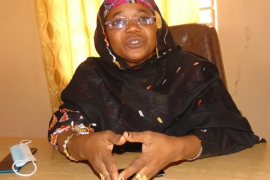Firoozeh Kashani-Sabet is the Robert I. Williams Term Professor of History and director of the Middle East Center at the University of Pennsylvania. She is a scholar of modern Iran, the Ottoman Empire, and the Persian Gulf, having published extensively on these topics.
She has studied Arab/Persian relations, as well as Sunni/Shia conflicts. She is also an expert on boundary disputes and politics in the Middle East, as well as an established scholar on the history of US—Iranian relations.
Firoozeh Kashani-Sabet received her B.A. from the University of North Carolina at Chapel Hill, where she was a Morehead Scholar. She completed her M.A., M.Phil. and PhD in history at Yale University. Her book, Frontier Fictions: Shaping the Iranian Nation, 1804-1946 analyzes the significance of land and border disputes to the process of identity and nation formation, as well as to cultural production, in Iran and its borderlands. It pays specific attention to Iran’s shared boundaries with the Ottoman Empire (later Iraq and Turkey), Central Asia, Afghanistan, and the Persian Gulf region. Her book was translated into Persian by Kitabsara Press, Tehran, Iran and has been released in paperback by Princeton in 2011. It is currently being translated into Turkish.
Building on this body of research, Professor Kashani-Sabet is completing a forthcoming book, Tales of Trespassing: Borderland Histories of Iran and the Middle East (under contract to Cambridge University Press), in which she expands on her arguments about frontiers, nature, and border communities in Middle Eastern modernity. She spent the 2015-16 academic year at the Institute for Advanced Study’s School of Social Science in Princeton, New Jersey participating in the School’s designated theme, “Borders and Boundaries.”
In addition, Dr Kashani-Sabet has worked extensively on the histories of disease, science, and reproductive politics. She finished a book entitled, Conceiving Citizens: Women and the Politics of Motherhood in Iran, which received the 2012 book award from the Journal of Middle East Women’s Studies for outstanding scholarship in the field of Middle East gender studies. She has also published articles on disability, hygiene, humanism, and quarantines in the context of the Persianate world.
Currently, she is preparing a book on America’s historical relationship with Iran and the Islamic world entitled, Between Heroes and Hostages: A Cultural History of US-Iranian Relations (under contract to Princeton University Press). She has delivered numerous public presentations drawn from this research project.
Professor Kashani-Sabet has written several fictional pieces. Her first novel, Martyrdom Street was published by Syracuse University Press in 2010, and an excerpt from this work is available for download below. She is in the process of writing another novel that grapples with the complexities of modern Iranian society. Kashani-Sabet views fiction as a creative medium through which to explore the human and emotional dimensions of social upheaval.
She teaches courses on various aspects of modern Middle Eastern history, including ethnic and political conflicts, borderlands, gender and women’s issues, popular culture, diplomatic history, revolutionary ideologies, and general surveys. Dr Kashani-Sabet has directed the Middle East Center at the University of Pennsylvania since 2006. She has received funding from various entities, including the Social Science Research Council, to initiate cultural programs related to the Middle East.




